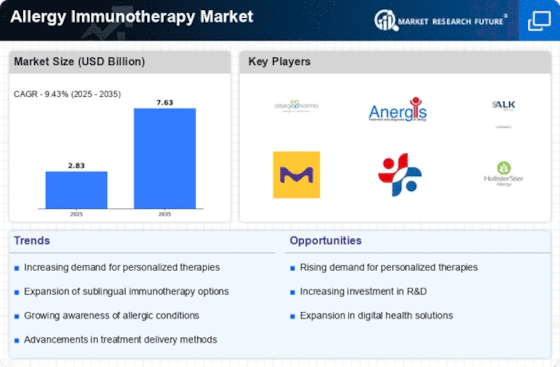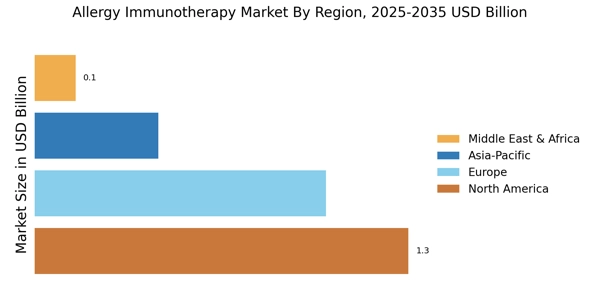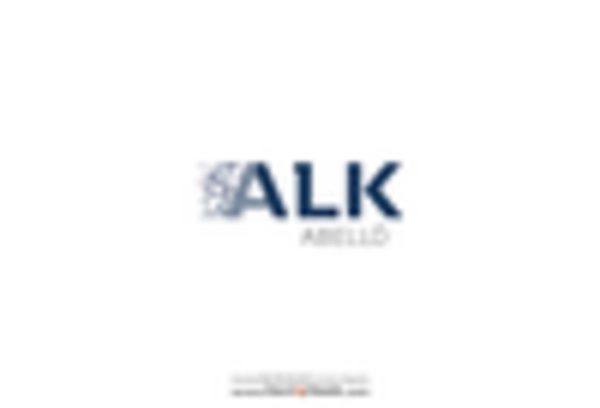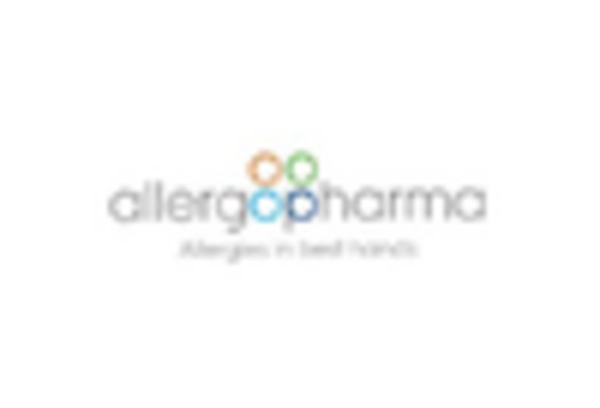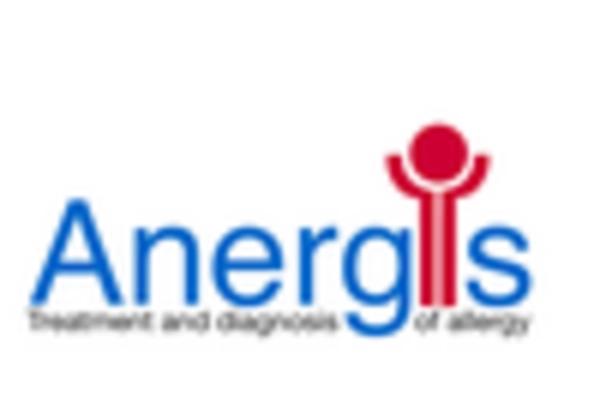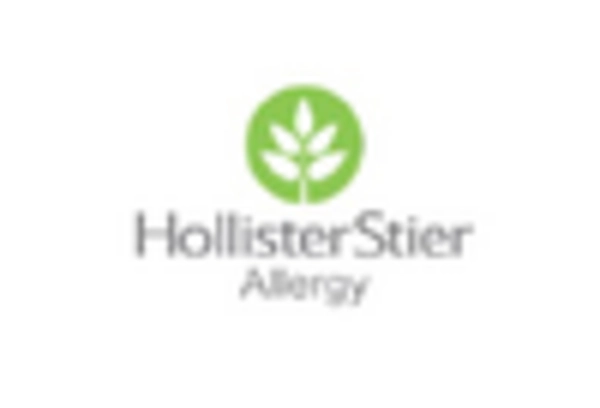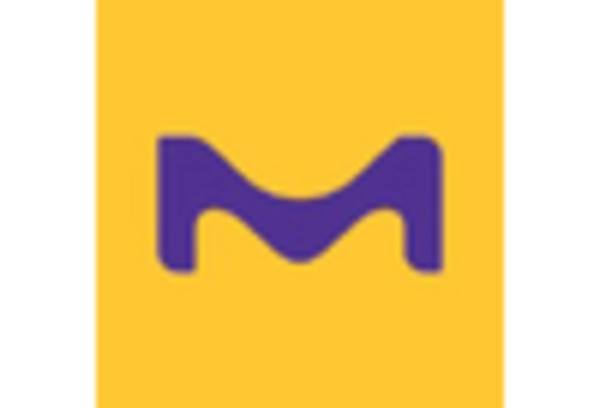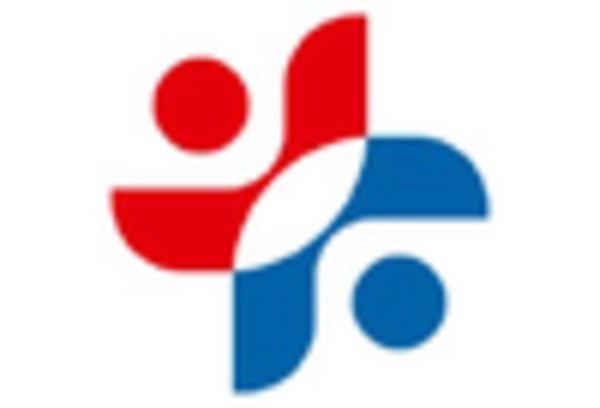Rising Allergy Prevalence
The Allergy Immunotherapy Market is experiencing growth due to the increasing prevalence of allergic conditions worldwide. Allergies, including allergic rhinitis and asthma, affect millions of individuals, leading to a heightened demand for effective treatment options. Recent estimates suggest that approximately 30% of the global population suffers from some form of allergy, which underscores the urgent need for innovative therapies. This rising incidence is prompting healthcare providers to seek advanced immunotherapy solutions, thereby driving market expansion. Furthermore, the growing awareness of the long-term benefits of immunotherapy over traditional symptomatic treatments is likely to enhance patient adoption rates. As more individuals seek relief from allergy symptoms, the Allergy Immunotherapy Market is poised for significant growth in the coming years.
Growing Awareness and Education
The Allergy Immunotherapy Market is experiencing growth driven by increased awareness and education regarding allergic conditions and their treatments. Public health campaigns and educational initiatives are informing patients about the benefits of immunotherapy, which is often underutilized. As more individuals become aware of the long-term advantages of allergy immunotherapy, such as reduced reliance on medications and improved quality of life, the demand for these treatments is expected to rise. Furthermore, healthcare professionals are increasingly advocating for immunotherapy as a viable treatment option, contributing to a shift in patient perceptions. This growing awareness is likely to play a crucial role in expanding the Allergy Immunotherapy Market as more patients seek effective solutions for their allergies.
Advancements in Immunotherapy Techniques
Technological innovations are playing a pivotal role in shaping the Allergy Immunotherapy Market. Recent advancements in treatment methodologies, such as sublingual immunotherapy and monoclonal antibodies, are enhancing the efficacy and safety profiles of allergy treatments. These innovations are not only improving patient outcomes but also expanding the range of allergens that can be effectively treated. For instance, the introduction of personalized immunotherapy approaches, which tailor treatment based on individual patient profiles, is gaining traction. This shift towards more targeted therapies is expected to attract a broader patient base, thereby propelling market growth. As these advancements continue to evolve, the Allergy Immunotherapy Market is likely to witness a surge in demand for novel treatment options.
Increased Investment in Allergy Research
The Allergy Immunotherapy Market is benefiting from increased investment in allergy research and development. Governments and private entities are recognizing the economic burden associated with allergic diseases, which has led to enhanced funding for innovative treatment solutions. In recent years, research funding has seen a notable uptick, with millions allocated to studies focused on immunotherapy. This financial support is fostering the development of new therapies and improving existing ones, thereby expanding the market landscape. Additionally, collaborations between academic institutions and pharmaceutical companies are becoming more prevalent, further driving innovation in the Allergy Immunotherapy Market. As research continues to advance, the potential for breakthrough therapies is likely to increase, attracting further investment.
Regulatory Support for Innovative Therapies
The Allergy Immunotherapy Market is being positively influenced by regulatory support for innovative therapies. Regulatory agencies are increasingly recognizing the importance of immunotherapy in managing allergic conditions and are streamlining the approval processes for new treatments. This supportive regulatory environment is encouraging pharmaceutical companies to invest in the development of novel immunotherapy products. Recent initiatives aimed at expediting the review of allergy treatments are likely to enhance the availability of new therapies in the market. As regulatory frameworks continue to evolve, the Allergy Immunotherapy Market is expected to benefit from a more favorable landscape for innovation and product launches.


